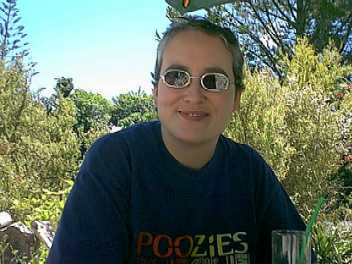The report recommends:
1. Postgraduate research methods courses should include research safety in their curricula.
2. The Economic and Social Research Council should consider whether provision of safety training in postgraduate research methods curricula should be a factor in determining whether those methods receive ESRC recognition.
3. University in-service training courses for PhD supervisors and principal investigators should cover researcher safety.
4. All university departments should be subject to periodic health and safety audits, which would include examination of provision for researcher safety.
5. All funders should require principal investigators to comply with the Social Research Association (or similar) guidelines.
6. All funders should formally invite referees to comment on researcher safety issues, where salient, as part of their assessments of grant applicants' research methods.
7. All university ethics committees should accept formal responsibility for oversight of provision for postgraduate student safety, with safety being addressed in the context of a specific question on the application form and of the guidance on form completion.
Take a look at Loughborough's Guidance for Investigators, available here.There's also something in the archives.
On a totally different tack Jim Hillage from the Institute for Employment Studies tells us that " Universities should be focusing on building relationships with different, often smaller, workplaces, and that will require more understanding of this group, along with greater flexibility about meeting their individual needs." (THES 3/8/07 Everyone has the right to better skills).

The International Study Association on Teachers and Teaching held its biennial conference at Brock University, St Catherines, Ontario, Canada in July this year. ISATT 2007 had the theme "Totems and Taboos: Risk & Relevance in Research" and brought together just under 200 researchers and practitioners from a great variety of countries (Canada, the UK, Netherlands, Belgium, Spain, Mexico, Portugal, Norway, Finland …). The conference organisers provided us with a full programme of papers, keynotes and social activities with enough space to indulge in those discussions provoked by so many intellectual exchanges.
There were some interesting keynotes, not least Joel Spring from City University, New York who challenged the way lifelong learning has been debased, from development as a person to skills acquisition at the behest of the economy. He argued that the knowledge economy is based on the principle of consumerism and education on delivering the global consumer, aims which lead to great dissatisfaction and uncertainty as we are encouraged to constantly strive for "more" and "better" rather than enough for our needs. If you want to know more check out his latest book "Pedagogies of Globalization".

Keith Trigwell, who has returned to the University of Sydney after a stint at Oxford University, told us about his phenomenographic research looking at approaches to teaching of lecturers and the impact this has on student learning, work that has been published over a number of years with colleagues such as Mike Prosser, Paul Ramsden and Elaine Martin. He also discussed the hierarchy of research he and Paul Ashwin developed, referencing work done by Carolin Kreber, currently at Edinburgh University.
There were other papers of interest dealing with the development of academic identity, reflective studies on becoming an academic, supervisor training, teaching graduate students to teach, technology use and a lunchtime session on how to get published in the society's journal Teachers and Teaching - Theory and Practice.
I presented a paper about the aims of the CETL initiative in the UK and the pedagogic research work being conducted within the engCETL. She outlined the issues she has to deal with as a pedagogic researcher working within a different disciplinary culture and the activities she has undertaken in order to encourage colleagues within the engCETL and associated academic departments to think about pedagogic research and identify good teaching and learning practice in order to enhance student learning.
The next conference, in 2009, will be held in Rovainiemi in Finnish Lapland, hope to see you there! Take a look at this info:Travel advisor Finavia, The Independent article on Lapland
Some relevant references:
Ashwin, P., & Trigwell, K. (2004). Investigating Staff and Educational Development. In P. Khan & D. Baume (Eds.), Enhancing Staff and Educational Development. London: Kogan Page.
Kreber, C. (2002). Controversy and Consensus on the Scholarship of Teaching. Studies in Higher Education, 27(2), 151 - 167.
Kreber, C. (2003). The scholarship of teaching: A comparison of conceptions held by experts and regular academic staff. Higher Education, 46(1), 93-121.
Prosser, M., & Trigwell, K. (1999). Understanding Learning and Teaching: The Experience in Higher Education. Buckingham: SRHE and Open University Press.
Prosser, M., Ramsden, P., Trigwell, K., & Martin, E. (2003). Dissonance in Experience of Teaching and its Relation to the Quality of Student Learning. Studies in Higher Education, 28(1), 37-48.
Prosser, M., & Trigwell, K. (2005). Confirmatory factor analysis of the Approaches to Teaching Inventory. British Journal of Educational Psychology, 76(2), 405-419.
Spring, J. (2006). Pedagogies of Globalization: The Rise of the Educational Security State (Sociocultural, Political, and Historical Studies in Education) (Sociocultural, Political, and Historical Studies in Education): Lawrence Erlbaum.
Trigwell, K., Prosser, M., & Ginns, P. (2005). Phenomenographic pedagogy and a revised Approaches to teaching inventory. Higher Education Research & Development, 24(4), 349-360.



